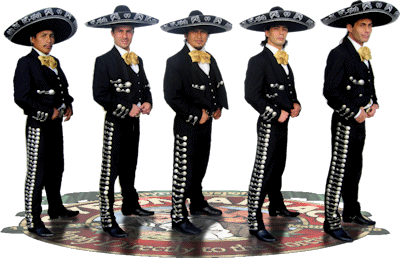by Phil Johnson
Note: I didn't participate in the comment-section of Tuesday's post, so I have no axe to grind there. I didn't watch Lost, so I don't care about the program or its much-debated ending. In fact, I'm so apathetic about it that I would not have even read Dan's Tuesday post if I hadn't noticed (fairly late Wednesday) that the comment-count had gone over a hundred. What was all the fuss about? I wondered. After reading, I decided to post my comment here.
I should point out first of all that we rarely do movie reviews or cultural commentary on this blog, and there are two reasons for that. One is that we're much more concerned with important things that are happening in the church than we are with the trivial things that already get too much of the world's attention. (Please understand: we're neither hermits nor pietists, but what I'm saying is that the blog has a fairly specific focus, and that's on purpose.)
The second reason is more complex. Let's face it: we usually aim our critiques at those who are having the most influence among evangelicals these days—those who are so concerned with being cool and gaining the world's approval that they show little concern about holiness. Because that has been our emphasis, we have attracted more than our fair share of very vocal legalists who are convinced that the person with the weakest conscience (or the Bible college with the strictest rules) should get to define holiness for everyone—rather than letting Scripture define it for us. They believe it is their prerogative to dictate to everyone else what's acceptable and what's not, rather than following the principles of Romans 14 with regard to matters that aren't altogether clear. Those people surface at every opportunity, and they seem to love making a fuss. Sometimes it's fairly humorous (as in the "Chiquita" kerfuffle a few years ago). Other times (like this week) the debate quickly becomes highly emotional and unduly personal.
I don't like that. Yet I'm convinced that legalism in the name of Christ is far more spiritually destructive than the libertinism that dominates secular society.
So here's my entry into this week's discussion. And I'm officially closing Monday's comment-thread. |
|


egalists sometimes defend themselves by claiming that
legalism, properly understood, is just what Paul condemned in Galatians 1: the sin of making justification conditional on some work or ceremony performed by the sinner. In other words, legalism is works-salvation. So, they say, if you formally affirm the principle of
sola fide and preach that people can be saved without any prerequisite work, you can't possibly be a
legalist, no matter how many rules you make and impose on the consciences of people who are already converted.
No.
Legalism is the error of abandoning our liberty in Christ in order to take on a yoke of legal bondage (Galatians 5:1). There are actually
two kinds of legalism.
First is the one recognized and despised even by the fundamentalist with his thick rule-book. It's
the legalism of the Judaizers. The Judaizers wanted to make circumcision a requirement for salvation. They had fatally corrupted the gospel by adding a human work as a requirement for salvation. That is certainly the
worst variety of legalism, because it destroys the doctrine of justification by faith and thereby sets up "a gospel contrary to the one you received" (Galatians 1:8-9).
But another kind of legalism is
the legalism of the Pharisees. It's the tendency to reduce every believer's duty to a list of rules. This is the kind of legalism that often seems to surface in our comment-threads. At its root is a belief that holiness is achieved by legal means—by following a list of "standards." This type of legalism doesn't necessarily destroy the doctrine of justification like the legalism of the Judaizers. But it
does destroy the doctrine of sanctification, and it is certainly appropriate to call it what it is:
legalism—i.e., a sinful misapplication of law; an attempt to make law do work that only grace can do. Like the Judaizers' brand of legalism, it brings people under a yoke of bondage Scripture has not placed on them.
As a matter of fact, that is exactly what Jesus said about the legalism of the Pharisees: "They tie up heavy burdens, hard to bear, and lay them on people's shoulders" (Matthew 23:4).
Pharisaical legalists are not content to live life in the power of the Spirit, cultivate discernment, and avoid things that are clearly profane or immoral; they make lists of rules that prohibit Christians from practically everything but church activities. It's not enough to avoid gambling; they insist that good Christians will avoid card-playing altogether. They're not content with doing things in moderation and with self-control, they make rules that call for strict abstinence from everything doubtful—and they try to impose those rules on other Christians—saddling people with a yoke that they imagine exists somewhere in the white spaces of Scripture.
You want rules? Here's a good one to start with:
When it comes to the question of spiritual duties, where Scripture stops speaking, we should, too.

The Pharisees' sin was making rules that went beyond what Scripture actually said. For example, they read in the law that it is a sin to take God's name in vain (Exodus 20:7), so they expanded the rule to forbid the use of God's name at all. They invented euphemisms to be used in place of God's name (Matthew 23:22).
The Pharisees saw the stress that was laid on ceremonial cleanness in the Old Testament, so they invented all kinds of extra washings and required people to observe those as well. In fact, Matthew 15 tells how the Scribes and Pharisees tried to condemn Jesus for not making his disciples observe their extrabiblical traditions: "Then Pharisees and scribes came to Jesus from Jerusalem and said, 'Why do your disciples break the tradition of the elders? For they do not wash their hands when they eat'" (Matthew 15:1-2).
There was no biblical commandment requiring people to do any ceremonial washing before they ate. The priests were supposed to wash their hands before offering sacrifices to God, but no law required everyone to wash up before every meal.
Jesus' response to the Pharisees was a stern rebuke: "He answered them, 'And why do you break the commandment of God for the sake of your tradition?'" (Matthew 15:3). In other words, He rejected their tradition
because it was not what the Word of God taught. Even though we all
know that washing before meals is good hygiene, and a good idea, He flatly rejected their notion that it is "sinful"
not to do it.
He said their legalism transgressed the Scriptures. Legalism
always has an anti-biblical tendency. You cannot go
beyond Scripture without ultimately setting yourself
at odds with Scripture.
That is precisely what happened in the fundamentalist movement, and one of the major reasons that movement has failed so notoriously. Legalism diverts people's attention from sound doctrine, so that the typical fighting-fundie legalist is doctrinally ignorant, reserving his or her "convictions" for a silly manmade system of rules. Ask the typical self-styled fundamentalist to define the difference between imputed and imparted righteousness, and he will not be able to do so. Suggest that it's OK for women to wear pants, or for people to use another version besides the KJV for Bible study, and the same fundy will lock and load his angry dogmatism, ready to do battle or even die for some ridiculous manmade "standard." Thus, as Jesus said, they have nullified the Word of God for the sake of their manmade traditions.

Let me say this plainly: It is a
sin to impose on others any "spiritual" standard that has no biblical basis. When God gave the law to Israel, He told them, "You shall not add to the word that I command you, nor take from it, that you may keep the commandments of the LORD your God that I command you" (Deuteronomy 4:2). And, "Everything that I command you, you shall be careful to do. You shall not add to it or take from it" (Deuteronomy 12:32).
The same principle is repeated in the New Testament. In 1 Corinthians 4, Paul was rebuking the Corinthians for their sectarianism, saying "I am of Paul"; "I am of Apollos," and so on. His rebuke to them includes these words in 1 Corinthians 4:6: "I have applied all these things to myself and Apollos for your benefit, brothers,
that you may learn by us not to go beyond what is written."
That is a good guideline for how we should exercise our Christian liberty: Don't go beyond what is written in Scripture. Don't make rules to impose on others; don't devise rituals and forms of worship that are not authorized; and don't speak on such matters where God has been silent. That's the whole principle of
Sola Scriptura applied to Christian living. If we really believe Scripture is a sufficient rule for the Christian life, then we don't have to add anything to it.
Nor is there virtue in applying every principle of Scripture in the strictest possible way. "Put[ting away] obscene talk from your mouth" (Colossians 3:8) doesn't mean you are guilty of sin every time you hear
someone else use an obscenity or take the Lord's name in vain. "Keep[ing] oneself unstained from the world" (James 1:27) doesn't mean you have to avoid contact with the world or hole up in a nunnery (1 Corinthians 5:9-12).
If we add rules that Scripture doesn't make—especially if we try to impose our manmade rules on other people's consciences as a standard of spirituality—we are guilty of the same sin as the Pharisees and worthy of the same harsh rebukes Christ leveled at them.


 his year's Standpoint Conference is an online video event only, and my contribution was posted today at the Sharper Iron blog.
his year's Standpoint Conference is an online video event only, and my contribution was posted today at the Sharper Iron blog.


 egalists sometimes defend themselves by claiming that legalism, properly understood, is just what Paul condemned in Galatians 1: the sin of making justification conditional on some work or ceremony performed by the sinner. In other words, legalism is works-salvation. So, they say, if you formally affirm the principle of sola fide and preach that people can be saved without any prerequisite work, you can't possibly be a legalist, no matter how many rules you make and impose on the consciences of people who are already converted.
egalists sometimes defend themselves by claiming that legalism, properly understood, is just what Paul condemned in Galatians 1: the sin of making justification conditional on some work or ceremony performed by the sinner. In other words, legalism is works-salvation. So, they say, if you formally affirm the principle of sola fide and preach that people can be saved without any prerequisite work, you can't possibly be a legalist, no matter how many rules you make and impose on the consciences of people who are already converted.
 Let me say this plainly: It is a sin to impose on others any "spiritual" standard that has no biblical basis. When God gave the law to Israel, He told them, "You shall not add to the word that I command you, nor take from it, that you may keep the commandments of the LORD your God that I command you" (Deuteronomy 4:2). And, "Everything that I command you, you shall be careful to do. You shall not add to it or take from it" (Deuteronomy 12:32).
Let me say this plainly: It is a sin to impose on others any "spiritual" standard that has no biblical basis. When God gave the law to Israel, He told them, "You shall not add to the word that I command you, nor take from it, that you may keep the commandments of the LORD your God that I command you" (Deuteronomy 4:2). And, "Everything that I command you, you shall be careful to do. You shall not add to it or take from it" (Deuteronomy 12:32).
 have always preferred independency. I consider myself an independent in every sense. I'm not looking for a movement to join. I belong to [Grace Community] church. That's enough for me. And I'm willing to work alongside anyone and everyone who shares my essential biblical convictions, whether the label they would slap on themselves is "fundamentalist," "evangelical," "strict and particular Baptist," or just plain old "Christian."
have always preferred independency. I consider myself an independent in every sense. I'm not looking for a movement to join. I belong to [Grace Community] church. That's enough for me. And I'm willing to work alongside anyone and everyone who shares my essential biblical convictions, whether the label they would slap on themselves is "fundamentalist," "evangelical," "strict and particular Baptist," or just plain old "Christian." Think about the fruits of the various twentieth-century movements. Liberals and theological radicals never did anything but kill churches and turn denominations into spiritual wastelands.
Think about the fruits of the various twentieth-century movements. Liberals and theological radicals never did anything but kill churches and turn denominations into spiritual wastelands.



 What do common sense and Scripture tell us about the relative weight of different truths?
What do common sense and Scripture tell us about the relative weight of different truths?
 ommon sense makes it crystal-clear to most people that some truths in Scripture are of primary importance, and other truths are less vital.
ommon sense makes it crystal-clear to most people that some truths in Scripture are of primary importance, and other truths are less vital.
 It seems to me that the distinction between primary and secondary doctrines is implicit rather than explicit in Scripture. But I think the distinction is still very clear. Here, briefly, are five biblical arguments in favor of making some kind of distinction between primary and secondary doctrines:
It seems to me that the distinction between primary and secondary doctrines is implicit rather than explicit in Scripture. But I think the distinction is still very clear. Here, briefly, are five biblical arguments in favor of making some kind of distinction between primary and secondary doctrines:

 ne thing you'll quickly notice if you make even a casual study of historical theology is this: the history of the church is a long chronicle of doctrinal development that runs from one profound controversy to the next.
ne thing you'll quickly notice if you make even a casual study of historical theology is this: the history of the church is a long chronicle of doctrinal development that runs from one profound controversy to the next.
 ne thing I have tried to keep an eye on whilst teaching theology in Sicily is
ne thing I have tried to keep an eye on whilst teaching theology in Sicily is  It seems that at a recent meeting of the Fundamental Baptist Fellowship International (FBFI), Dr. Dan Sweatt
It seems that at a recent meeting of the Fundamental Baptist Fellowship International (FBFI), Dr. Dan Sweatt 








